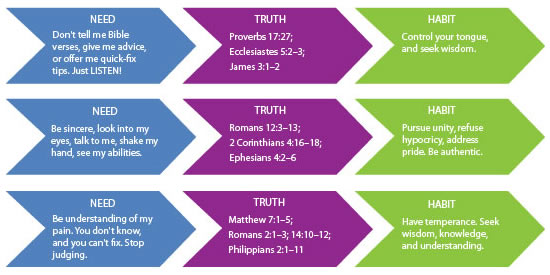
I am definitely a creature of habit, and maybe you are too. A habit provides a sense of security and simplicity. Studies show that with persistence and patience a habit can be created in about 30 days.
However, sometimes we have harmful habits that hinder our spiritual growth. Consider for a moment what you believe about other people. Do you set certain conditions that must be met before you will accept others? Do you reject or judge others based upon their appearance, mannerisms, attendance or involvement in church, how their children behave?
I recently surveyed a few people who live with chronic pain, are divorced, are depressed, have an invisible disability, or are grieving the loss of a loved one. I asked them to comment on how they are treated by professing Christians. I’m going to be candid here: 99 percent replied they have been rejected, judged, or looked down upon because they didn’t “fit in.” The pain from such judgment has caused almost all of these folks to stop interacting with other Christians.
As creatures of habit, where you sit in church is vastly important. Why? Well, one out of every two people have some sort of disabling condition, meaning someone to your right or left will most likely fit this description. That is tough to swallow until we highlight some great news. We may be creatures of habit, but our habits don’t have to be set in concrete. We can choose to form new habits. And if we start developing habits based on biblical truths rather than personal preference, revolutionary changes can happen within the Christian body!
Below is a list of the top three relational needs reported by people who suffer from a disabling condition. Next to each need is a biblical truth as to how to respond. The third column lists habits we need to develop. I urge you to examine the need, seek to learn God’s direction from His Word, and then create habits which put truth into action. Being a creature of habit is great, if the habit is grounded in God’s timeless truth.
